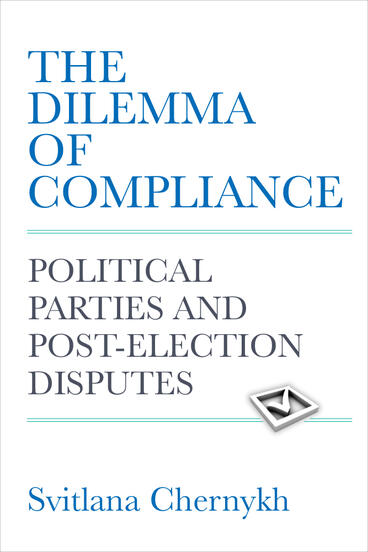The Dilemma of Compliance
Political Parties and Post-Election Disputes
Exploring the causes and consequences of post-election disputes
Description
Over the past twenty years, the causes and consequences of post-election disputes have become one of the most compelling topics of research in political science. Between 2012 and 2022, political parties challenged the results of more than 25 percent of elections. When democratic transitions are dependent on the willingness of participants to accept defeat, political parties can undermine election-based democracy by rejecting the outcome. As the world enters the fourth decade since the start of the third wave of democratization, the question of whether election losers will comply or reject election outcomes is more and more pressing. The Dilemma of Compliance analyzes this phenomenon at the level of political parties, raising three important questions: Why do some political parties refuse to comply with election results? What determines the strategies they use to contest the outcomes? What consequences do post-election disputes have for the political parties that initiate them?
To answer these questions, this book draws on an original dataset of post-election responses encompassing over 300 political parties, which participated in 270 elections held in twenty-two countries of Eastern Europe and the former Soviet Union over a period of more than two decades. In doing so, it offers a new theoretical framework for studying electoral compliance in comparative perspective and advances research on democratic transition, democracy promotion, post-election protests, and party politics.
Svitlana Chernykh is Senior Lecturer in the School of Politics and International Relations at Australian National University.
Reviews
“Svitlana Chernykh’s praiseworthy book explores the causes and consequences of post-election disputes. This is a timely topic, not only for developing countries, but also increasingly for the troubled ‘established’ democracies, including the United States. The scholarship is sound, the findings novel, and the manuscript is engagingly written.”
- Daniela Donno, University of Oklahoma
“This excellent and engaging book examines non-compliance with election outcomes. It raises important questions that speak to several strands of research and should be valuable to practitioners in election management.”
- Inken von Borzyskowski, University of Oxford

